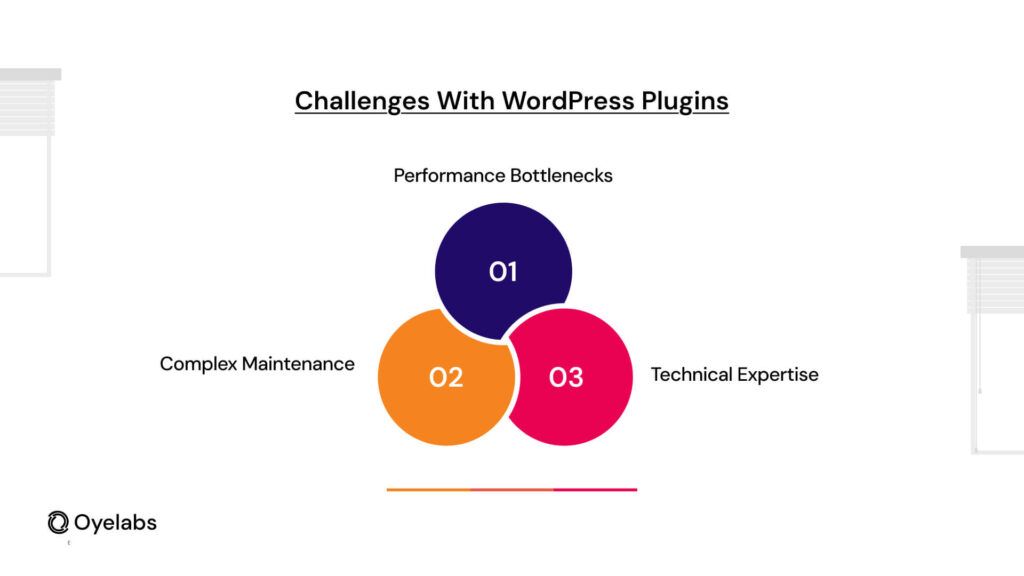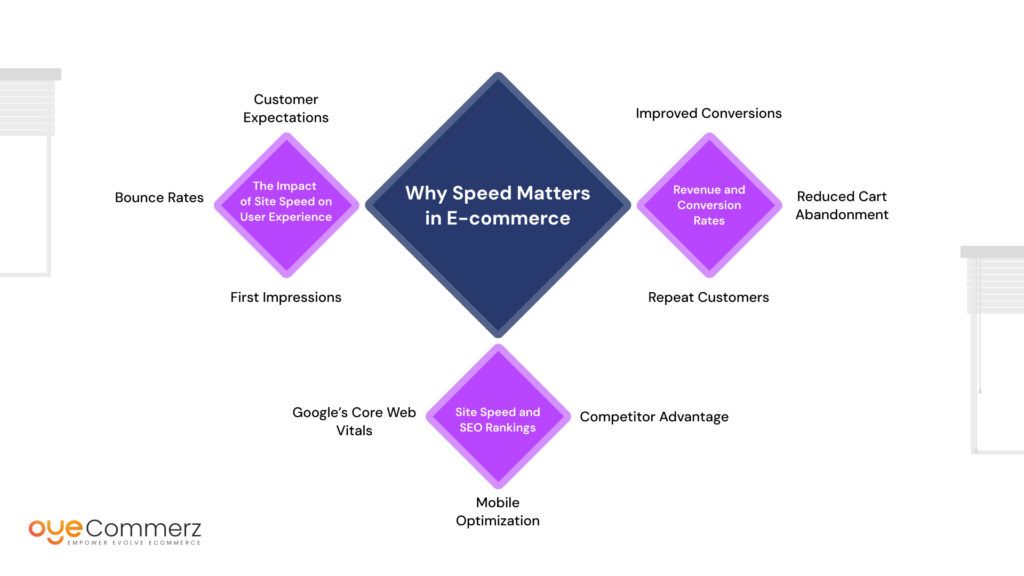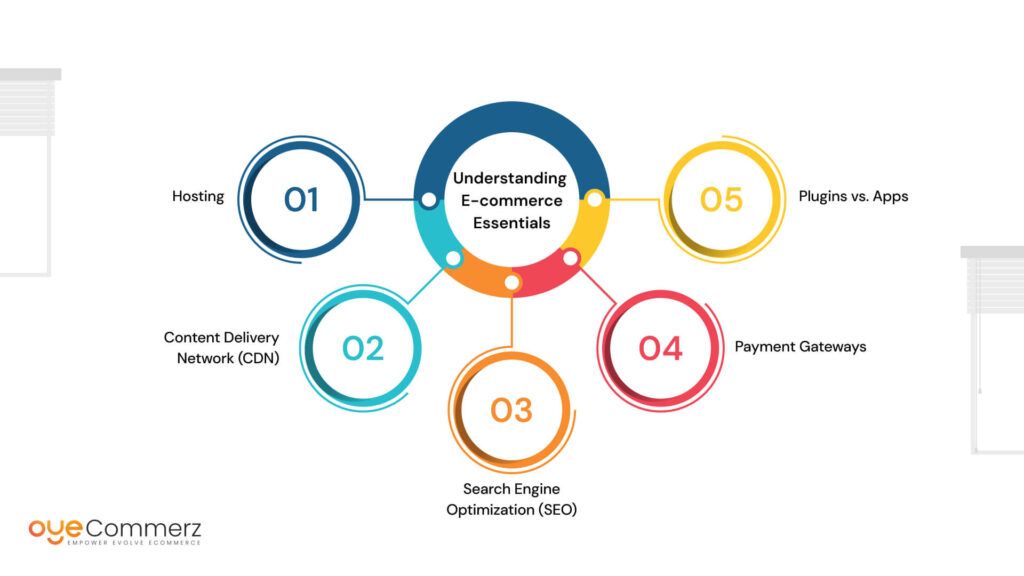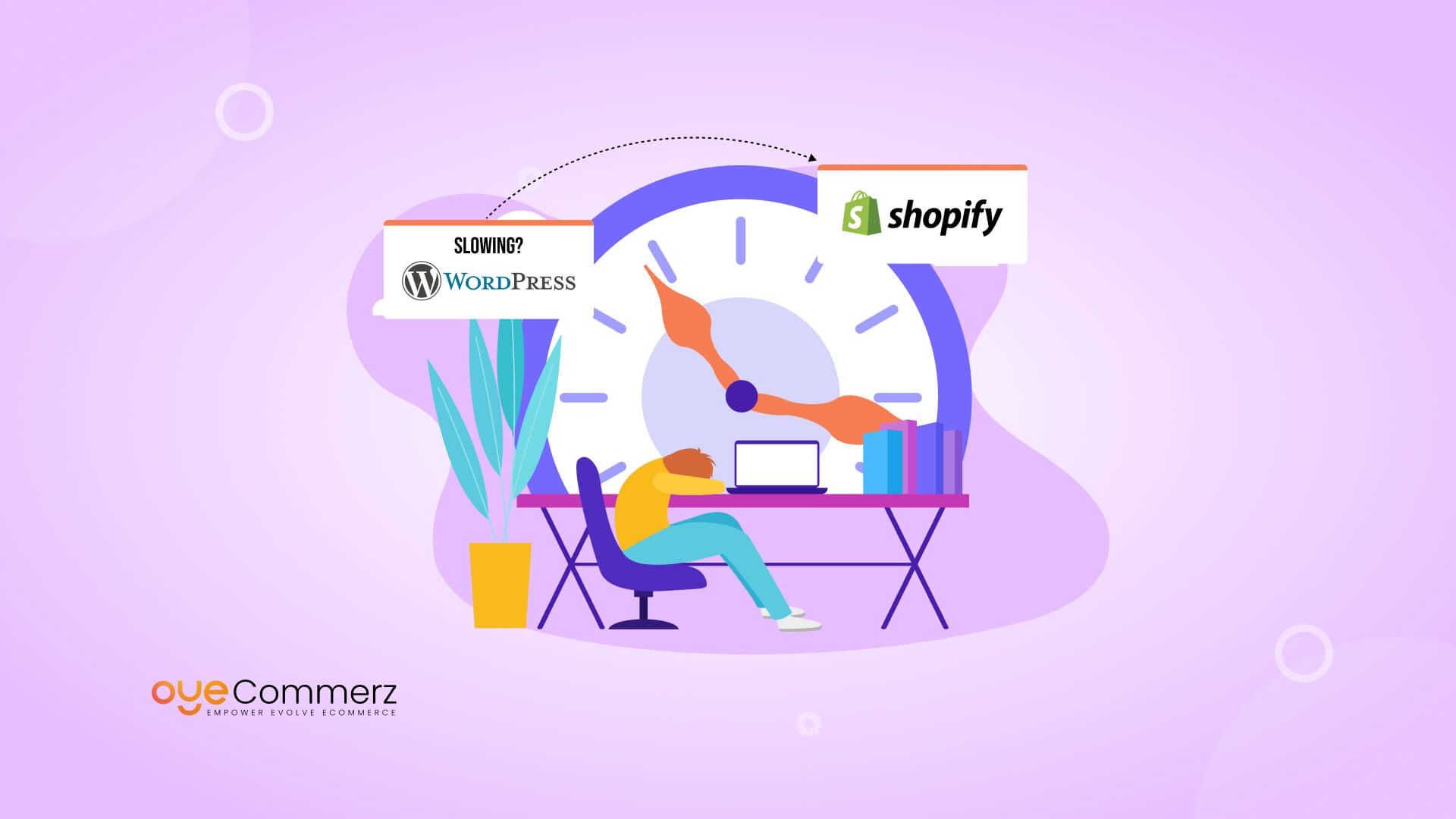If slow load times, endless plugin updates, and frequent technical hiccups are driving you crazy, you’re not alone. Did you know that a 1-second delay in page load time can reduce conversions by 7%? That’s a lot of lost opportunities, especially for online stores.
For existing WordPress site owners, managing plugins often feels like juggling too many balls at once—performance dips, security risks, and constant maintenance can hold your business back. But what if there’s a faster, more reliable way to run your e-commerce store?
Enter Shopify: an all-in-one e-commerce platform that prioritizes speed, simplicity, and scalability. Whether you’re an existing Shopify business owner exploring enhancements or a WordPress user considering the switch, this guide will show you how WordPress to Shopify migration can solve your site’s biggest challenges and unlock its full potential. Let’s dive in!
Table of Contents
ToggleThe Basics – Understanding WordPress and Shopify
What is WordPress?
WordPress is a highly versatile Content Management System (CMS) that powers nearly 40% of websites globally. Originally launched as a blogging platform, it has evolved into a go-to solution for building websites across various industries, including e-commerce. Its popularity lies in its open-source nature, allowing users to create fully customizable websites using themes and plugins.
One of WordPress’s standout features is its plugin-based customization approach. Plugins act as add-ons that enable users to extend the functionality of their website. From managing SEO to enabling payment gateways, there’s a plugin for nearly every feature you could imagine. However, this versatility comes with a trade-off: the more plugins you use, the higher the chance of conflicts, slower loading speeds, and maintenance headaches.
Common Use Cases for WordPress in E-commerce
WordPress, paired with its popular plugin WooCommerce, is a common choice for e-commerce businesses. It offers:
- Highly customizable product pages.
- Access to thousands of plugins for enhanced features.
- Flexibility to integrate with third-party services like shipping providers and email marketing tools.
While WordPress is ideal for tech-savvy users who enjoy tinkering with code and configurations, its reliance on multiple plugins often makes it less efficient for growing e-commerce businesses.
What is Shopify?
Shopify, on the other hand, is a dedicated e-commerce platform built with online sellers in mind. Unlike WordPress, Shopify offers an all-in-one solution that includes hosting, security, and e-commerce tools out of the box. Its primary focus is on simplicity and speed, making it a preferred choice for both beginners and experienced business owners.
One of Shopify’s strengths is its scalability. Whether you’re a small business owner or running a large-scale online store, Shopify’s infrastructure is designed to handle growth seamlessly. Its intuitive dashboard allows users to manage products, orders, and customers with ease, eliminating the need for third-party plugins for core functionalities.
Common Use Cases for Shopify in Online Retail
Shopify is widely used by e-commerce businesses looking for a platform that:
- Offers fast and secure hosting.
- Includes built-in tools for marketing, SEO, and analytics.
- Provides an easy-to-use interface for inventory and order management.
- Minimizes downtime and maintenance with automatic updates.
Challenges with WordPress Plugins
For many e-commerce business owners using WordPress, plugins are a double-edged sword. They provide flexibility and a variety of features, but they also introduce a host of challenges that can slow your site, compromise security, and hinder growth. Let’s break down these challenges to understand why a WordPress to Shopify migration might be the solution.

Performance Bottlenecks
Plugins are often considered the backbone of WordPress functionality. However, their extensive use can lead to significant performance issues, including:
- Slower Load Times
Each plugin adds extra scripts, stylesheets, and database queries. The more plugins you have, the longer your site takes to load. This directly impacts user experience and search engine rankings. - Conflicting Plugins
Not all plugins are built to work harmoniously. Conflicts between plugins can cause features to break or, worse, crash your site entirely. - Resource-Heavy Plugins
Some plugins, such as those for advanced SEO or analytics, consume excessive server resources, further slowing down your site during peak traffic times.
Complex Maintenance
Managing plugins on WordPress requires ongoing maintenance. Here’s why:
- Frequent Updates
Developers release updates to fix bugs, patch security vulnerabilities, and add new features. Missing these updates leaves your site exposed to risks. - Site Breakage Risks
Updating one plugin can inadvertently cause compatibility issues with others, leading to unexpected site outages or broken functionality. - Dependency on Developers
Non-technical users often struggle to resolve plugin-related issues, requiring external help from developers, which can be costly and time-consuming.
Technical Expertise
For e-commerce beginners, WordPress can feel overwhelming due to its technical demands:
- Hosting Setup
Users must choose a hosting provider, configure their server, and ensure it meets the site’s performance needs. - Security Management
WordPress requires manual implementation of security measures, such as installing SSL certificates, firewalls, and malware scanners. - Performance Optimization
To improve site speed, users must optimize images, enable caching, and use a Content Delivery Network (CDN)—tasks that can be complex for non-tech-savvy users.
How These Challenges Affect Your Business
The challenges with WordPress plugins aren’t just technical; they directly impact your business:
- Higher Bounce Rates
Slow-loading sites frustrate users, causing them to leave before exploring your products. - Lower Search Rankings
Google penalizes slow websites, reducing your visibility to potential customers. - Time Wastage
Troubleshooting plugin issues distracts you from focusing on growing your business.
The Need for a Better Solution
If these challenges sound familiar, it’s time to consider whether WordPress is still the right platform for your growing e-commerce needs. A WordPress to Shopify migration offers a streamlined alternative that eliminates these plugin-related headaches while enhancing site performance and user experience.
Why Speed Matters in E-commerce
In today’s fast-paced digital world, customers expect online stores to load in the blink of an eye. A delay of even a few seconds can cost you conversions, revenue, and customer trust. Let’s explore why speed is a critical factor for e-commerce success and how migrating from WordPress to Shopify can help you achieve better performance.

The Impact of Site Speed on User Experience
Site speed is directly tied to user satisfaction. Here’s how:
- Customer Expectations
Modern shoppers expect websites to load within 2-3 seconds. Any longer, and you risk losing their attention. - Bounce Rates
A slow website increases bounce rates, as visitors leave before the page fully loads. According to studies, a 1-second delay in load time can result in a 32% increase in bounce rates. - First Impressions
Your website speed shapes visitors’ perception of your brand. A fast-loading site appears professional and trustworthy, while a sluggish one can damage credibility.
Site Speed and SEO Rankings
Search engines prioritize fast websites in their rankings. Here’s why:
- Google’s Core Web Vitals
Speed, interactivity, and visual stability are key factors in Google’s ranking algorithm. Slow-loading pages are penalized, reducing your visibility in search results. - Mobile Optimization
With mobile traffic accounting for a large portion of e-commerce visits, a fast-loading mobile site is essential for SEO success. - Competitor Advantage
A faster site gives you a competitive edge, as customers are more likely to stay and shop on a site that responds quickly.
Revenue and Conversion Rates
Your bottom line is directly tied to your site’s speed:
- Improved Conversions
Studies show that for every second faster your site loads, your conversion rates can improve by 7-10%. - Reduced Cart Abandonment
Slow checkout pages are a common reason for abandoned carts. Faster processes increase the likelihood of completed purchases. - Repeat Customers
A seamless shopping experience encourages customers to return, boosting lifetime customer value.
Shopify’s Role in Speed Optimization
Unlike WordPress, Shopify’s infrastructure is designed with speed in mind. Its optimized hosting, built-in CDN, and minimal reliance on external apps ensure faster load times, giving your business a significant advantage in user experience and SEO.
Shopify – A Faster Alternative
If WordPress plugins have been dragging your site’s performance down, Shopify offers a better alternative. Designed specifically for e-commerce, Shopify eliminates the common bottlenecks faced by WordPress users, providing a platform that is both fast and user-friendly.
Optimized Performance
Shopify’s performance advantages stem from its robust infrastructure:
- Dedicated Hosting
Shopify provides built-in hosting, fine-tuned for e-commerce websites, so you don’t have to worry about server configurations. - Built-in CDN (Content Delivery Network)
A CDN reduces latency by delivering site content from servers closest to your customers, ensuring fast load times worldwide. - Minimal Bloat
Unlike WordPress, Shopify avoids performance-heavy plugins. Essential tools are pre-installed and optimized for speed.
Plugin-Free Efficiency
One of Shopify’s standout features is its curated approach to functionality:
- Pre-installed Tools
Shopify includes essential features like SEO optimization, payment gateways, and inventory management out of the box. - Curated App Store
While Shopify offers apps for additional functionality, these apps are rigorously vetted to ensure they don’t compromise performance. - No Plugin Conflicts
By minimizing the need for third-party tools, Shopify avoids the compatibility issues that plague WordPress users.
Ease of Use
Shopify’s intuitive interface is a game-changer for business owners:
- Seamless Maintenance
Automatic updates ensure your site stays secure and up-to-date without manual intervention. - User-Friendly Dashboard
Managing products, orders, and customer data is simple, even for those with no technical expertise. - 24/7 Support
Shopify’s customer support team is always available to assist with technical or operational issues, offering peace of mind.
Security and Reliability
Shopify’s commitment to security makes it a standout choice:
- PCI Compliance
Shopify meets the highest standards of payment security, protecting customer data and ensuring smooth transactions. - DDoS Protection
Built-in safeguards prevent downtime caused by malicious attacks. - 99.99% Uptime
Shopify’s reliable hosting ensures your site remains accessible, even during peak traffic periods.
For Newcomers to E-commerce
If you’re new to the world of e-commerce, choosing the right platform can feel overwhelming. It’s important to start with a solid foundation that supports your business growth without unnecessary technical hurdles. Let’s break down the basics and explain why Shopify is an excellent choice for beginners.
Understanding E-commerce Essentials
Before diving into platform options, let’s clarify some key e-commerce concepts:

- Hosting
Hosting is the service that makes your website accessible on the internet. WordPress requires external hosting, meaning you need to select a hosting provider, set up servers, and manage site performance. Shopify, on the other hand, includes hosting as part of its package, making it one less thing to worry about. - Content Delivery Network (CDN)
A CDN speeds up your site by delivering content from servers closest to your customers. Shopify has a built-in CDN, while with WordPress, you’ll need to integrate a third-party solution. - Search Engine Optimization (SEO)
SEO improves your site’s visibility in search engines. Both WordPress and Shopify offer SEO tools, but Shopify simplifies the process with built-in features that are easy to use. - Payment Gateways
Payment gateways process transactions securely. Shopify comes pre-integrated with options like Shopify Payments and PayPal, while WordPress requires additional plugins for payment functionality. - Plugins vs. Apps
Plugins and apps extend the functionality of your site. WordPress relies heavily on plugins for even basic e-commerce features, while Shopify includes essential tools out of the box and offers curated apps for advanced functionality.
Key Considerations for Starting an Online Store
Starting an e-commerce store involves balancing cost, features, and scalability. Here’s what you should keep in mind:
- Ease of Use: Choose a platform that doesn’t require extensive technical expertise, so you can focus on running your business.
- Cost Efficiency: Consider the total cost, including hosting, plugins, and maintenance.
- Scalability: Pick a solution that can grow with your business, handling increased traffic and product listings without performance issues.
- Support: Look for a platform with reliable customer support to help you navigate challenges.
Why Shopify is Perfect for E-commerce Beginners
Shopify simplifies the process of launching and managing an online store, making it ideal for newcomers:
- All-in-One Solution
Shopify eliminates the need for separate hosting, security, and performance tools by bundling everything in a single package. - User-Friendly Interface
Its intuitive dashboard lets you manage products, inventory, and orders without needing coding skills. - Pre-Built Themes
Shopify offers a wide range of professional themes that are mobile-responsive and customizable to match your brand. - 24/7 Customer Support
Whether you need help with setup or troubleshooting, Shopify’s support team is available around the clock.
How Shopify Helps You Avoid Common Pitfalls
New e-commerce store owners often face challenges like slow websites, technical issues, and high maintenance costs. Shopify addresses these problems with:
- Fast and Reliable Hosting
Shopify’s infrastructure is optimized for e-commerce, ensuring quick load times and high uptime. - Minimal Maintenance
Automatic updates mean you can focus on growing your business instead of fixing technical glitches. - Affordable Pricing
Shopify’s transparent pricing model includes hosting, security, and support, so you don’t have to budget for additional tools.
The First Step: WordPress to Shopify Migration
If you’re starting on WordPress and finding it overwhelming, a WordPress to Shopify migration is the logical next step. Shopify not only simplifies the process of running an online store but also provides the tools and resources you need to succeed, even if you’re new to e-commerce.
Oyecommerz – Your Shopify Migration Partner
Making the switch from WordPress to Shopify can seem daunting, but with the right partner, the process becomes seamless and stress-free. That’s where Oyecommerz steps in. Specializing in e-commerce development and migrations, Oyecommerz helps businesses transition to Shopify with minimal downtime and maximum efficiency. Let’s explore why partnering with us for your WordPress to Shopify migration is the best choice for your business.
Why Migrate to Shopify with Oyecommerz?
- Seamless Transition
Migrating from WordPress to Shopify involves transferring your store’s data, design, and functionality. Oyecommerz ensures this process is smooth, with no loss of critical information or disruptions to your business operations. - Customized Shopify Store
Your business is unique, and your Shopify store should reflect that. Oyecommerz offers tailored solutions to align your store’s design and features with your brand identity and business goals. - Minimal Downtime
We understand the importance of keeping your store operational during migration. Our team works efficiently to minimize downtime, ensuring your customers continue to enjoy a seamless shopping experience. - Expertise in Shopify Development
With years of experience in Shopify development, Oyecommerz delivers stores that are optimized for speed, security, and scalability. From theme customization to app integration, we’ve got you covered. - Post-Migration Support
The journey doesn’t end with migration. Oyecommerz provides ongoing support to help you navigate Shopify’s features and make the most of its capabilities.
The Benefits of Migrating with Oyecommerz
Choosing Oyecommerz for your migration brings several advantages:
- Data Security
We handle your data with the utmost care, ensuring all product details, customer records, and order histories are transferred securely. - Performance Optimization
Your new Shopify store will be optimized for fast loading times and a smooth user experience, addressing any performance issues from your WordPress site. - Enhanced Functionality
We integrate Shopify apps and features that align with your business needs, eliminating the reliance on multiple plugins. - Scalability
As your business grows, your Shopify store will scale effortlessly, handling increased traffic and transactions without compromising performance.
Our Migration Process
At Oyecommerz, we follow a streamlined migration process to ensure every detail is covered:
- Initial Consultation
We begin by understanding your current WordPress setup, pain points, and future goals. - Data Migration
All essential data, including products, customer information, and order history, is transferred to Shopify securely. - Design & Customization
Your store’s design is recreated or revamped to match your brand identity, ensuring consistency. - Testing & Quality Assurance
Before launch, we rigorously test your Shopify store to ensure all features function as expected. - Launch & Support
Once everything is ready, we go live and provide post-launch support to address any issues and help you navigate Shopify.
Take the Leap: Start Your Shopify Migration Journey Today
If WordPress plugins are slowing your site and you’re ready for a faster, more reliable platform, now is the time to make the switch. Partner with Oyecommerz for a hassle-free WordPress to Shopify migration and take your e-commerce business to the next level.
Contact Us Today!
Let Oyecommerz handle the technical details so you can focus on what matters—growing your business. Contact us today to get started on your journey to a faster, more efficient Shopify store.
Contact to Migrate your Site to Shopify Now
Conclusion
Migrating from WordPress to Shopify can transform your e-commerce experience. From resolving plugin-related challenges to boosting site performance, Shopify offers a scalable, user-friendly platform that empowers your business to thrive. By partnering with Oyecommerz, you ensure a smooth transition and unlock Shopify’s full potential.
Ready to make the switch? Contact Oyecommerz today and let’s build a faster, more efficient future for your e-commerce store!


